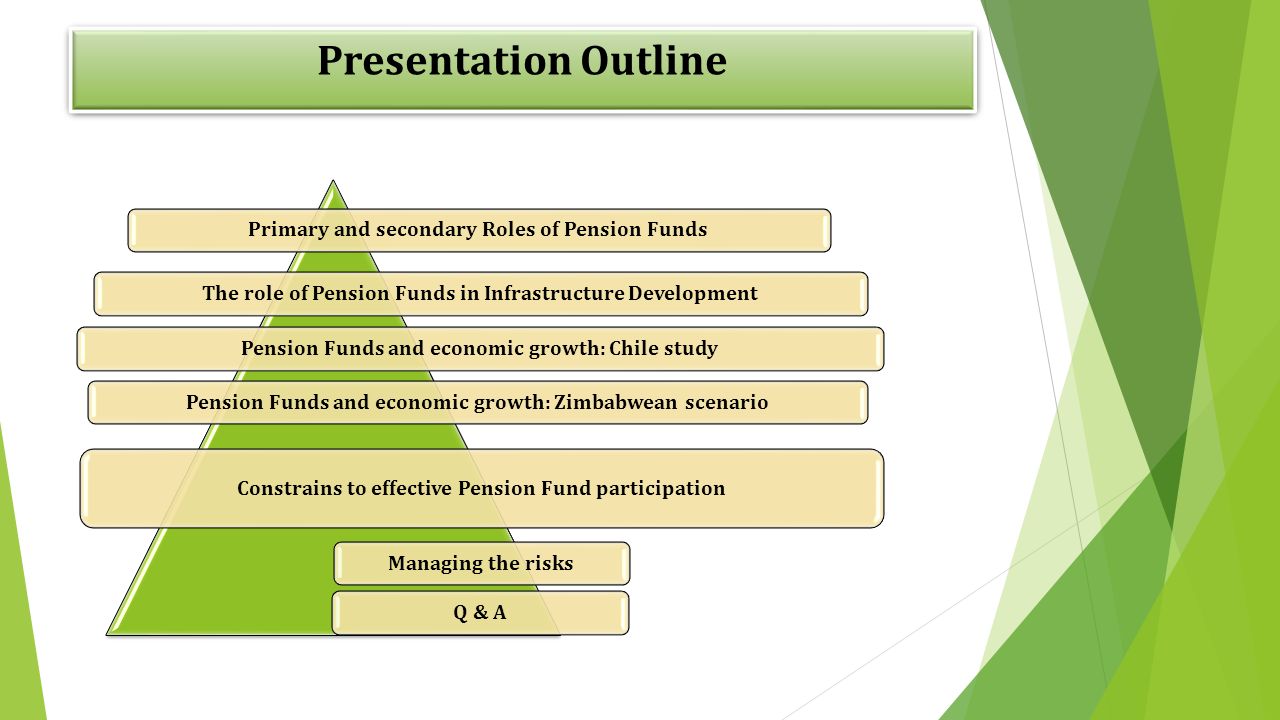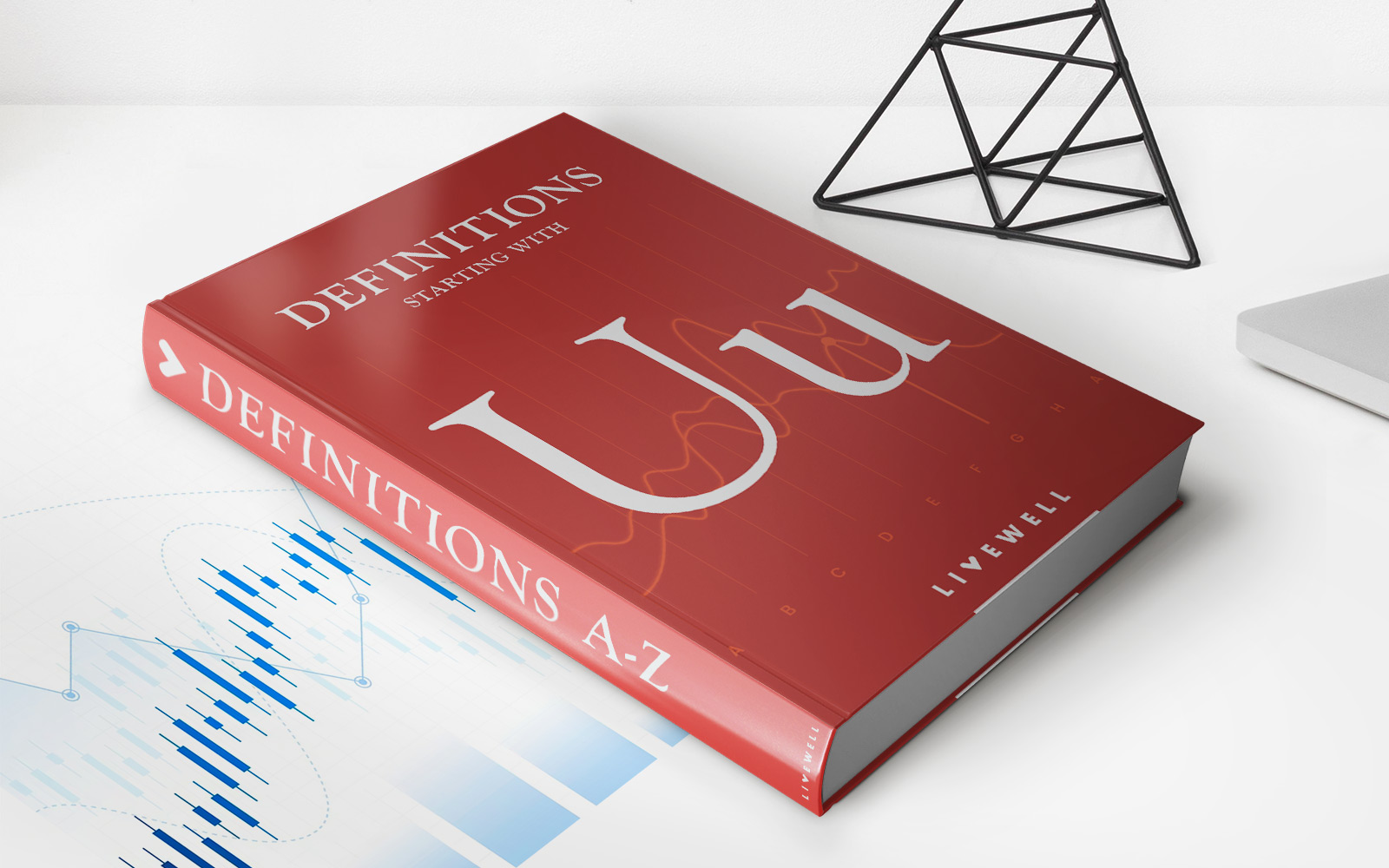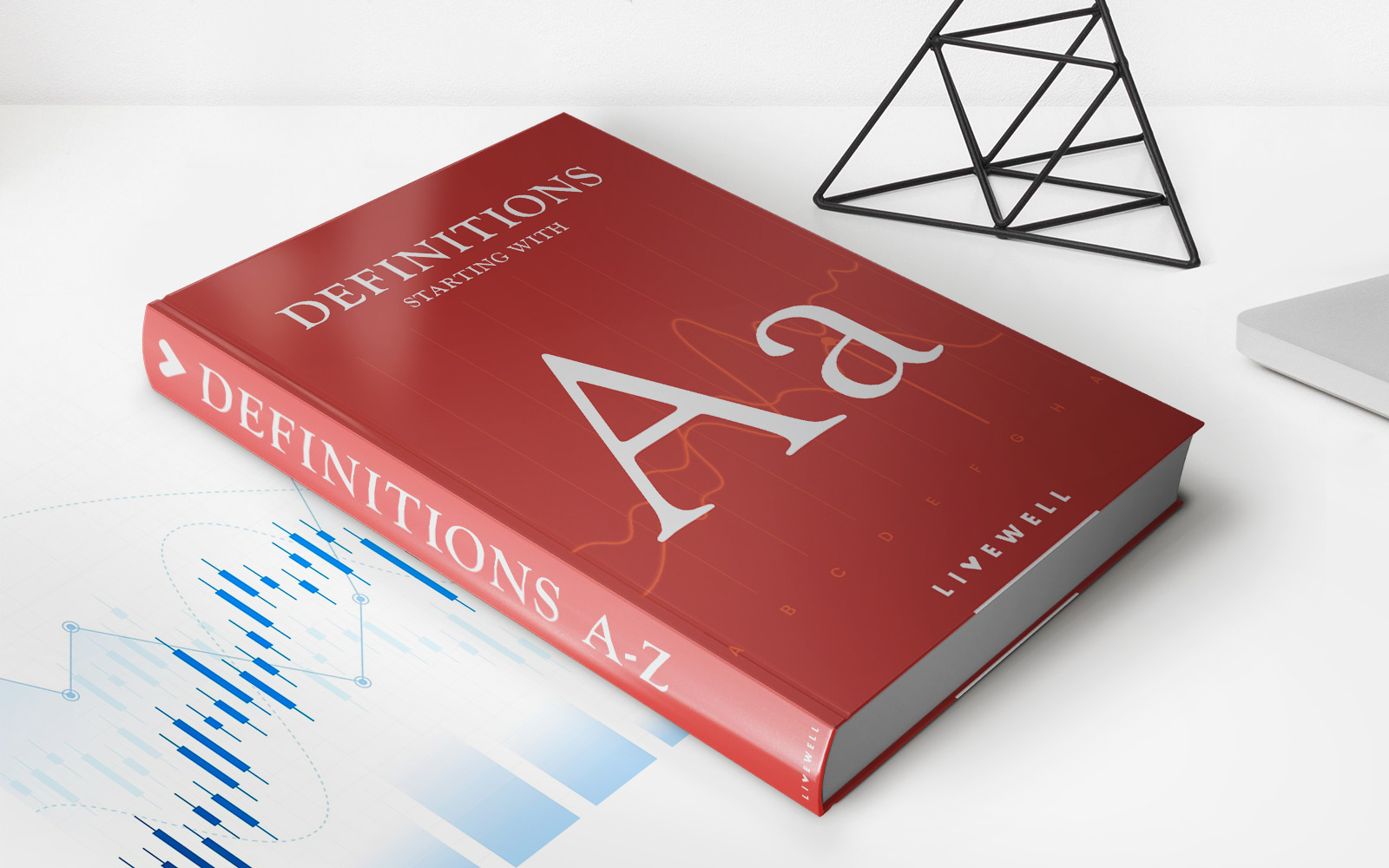Home>Finance>How Is It Possible That Pension Funds Can Be Raided Without Regard Or Punishment?


Finance
How Is It Possible That Pension Funds Can Be Raided Without Regard Or Punishment?
Published: January 23, 2024
Discover how pension funds can be raided without consequences in the finance industry. Learn about the loopholes and lack of punishment for such actions.
(Many of the links in this article redirect to a specific reviewed product. Your purchase of these products through affiliate links helps to generate commission for LiveWell, at no extra cost. Learn more)
Table of Contents
**
Introduction
**
Pension funds are designed to provide financial security and stability for individuals during their retirement years. These funds are typically managed by financial institutions or employers, with contributions made by employees and employers throughout the individual's working years. The primary purpose of pension funds is to ensure that retirees have a reliable source of income to support their living expenses after they have concluded their professional careers.
However, a concerning trend has emerged in recent years, raising questions about the security and integrity of pension funds. There have been numerous instances where pension funds have been raided without regard for the long-term consequences or the well-being of retirees. This practice not only undermines the financial security of retirees but also erodes public trust in the pension system.
In this article, we will delve into the complex landscape of pension fund raiding, exploring the underlying reasons, the legal and regulatory loopholes that enable such actions, and the far-reaching consequences for retirees and the broader financial system. Additionally, we will examine real-life case studies to illustrate the impact of pension fund raiding and propose actionable solutions to mitigate this issue.
As we embark on this exploration, it becomes evident that the protection of pension funds is paramount for the financial well-being of retirees and the sustainability of the pension system as a whole. By shedding light on this critical issue, we aim to raise awareness and foster meaningful discussions on how to safeguard pension funds from exploitation and ensure a secure future for retirees.
Understanding Pension Funds
Before delving into the complexities surrounding pension fund raiding, it is essential to grasp the fundamental concept of pension funds and their significance in the realm of retirement planning. Pension funds serve as a form of retirement savings, pooling contributions from employees and employers to generate a corpus that will provide financial support to employees after they retire. These funds are meticulously managed by financial institutions or pension fund managers, with the goal of generating returns on the invested contributions to ensure a steady income stream for retirees.
Typically, pension funds are structured as defined benefit plans or defined contribution plans. In a defined benefit plan, retirees are entitled to a predetermined amount of income based on factors such as salary history and years of service. On the other hand, defined contribution plans specify the contributions made by both employees and employers, with the eventual payout being dependent on the performance of the invested funds.
It is important to recognize the critical role that pension funds play in providing financial security during retirement. For many individuals, these funds represent a lifeline that enables them to maintain a decent standard of living and meet essential expenses once they have exited the workforce. Moreover, pension funds contribute to the overall stability of the economy by reducing the burden on social welfare programs and fostering a sense of financial independence among retirees.
Understanding the intricate mechanisms of pension funds underscores the significance of preserving their integrity and safeguarding them from exploitation. As we proceed, we will explore the various factors that contribute to the vulnerability of pension funds and the implications of their mismanagement, shedding light on the urgent need to address these challenges and fortify the retirement security of millions of individuals.
Reasons for Raiding Pension Funds
The decision to raid pension funds is often driven by a confluence of factors, ranging from corporate financial distress to regulatory ambiguity. One of the primary reasons for pension fund raiding is the pursuit of short-term financial gains, especially in scenarios where companies or organizations face immediate liquidity challenges. In such situations, decision-makers may opt to tap into pension funds as a convenient source of capital, disregarding the long-term repercussions on retirees and the financial stability of the fund.
Furthermore, some entities view pension funds as an attractive reservoir of assets that can be utilized to offset operating expenses or debt obligations. This perspective, albeit shortsighted, leads to the exploitation of pension funds for purposes unrelated to their intended function of providing retirement benefits. In certain cases, corporate restructuring or bankruptcy proceedings prompt the diversion of pension assets to address outstanding liabilities, often at the expense of retirees’ financial security.
Another significant driver of pension fund raiding is the lack of stringent regulatory oversight and enforcement. In the absence of robust governance mechanisms, unscrupulous actors may exploit loopholes in regulations to siphon funds from pension reserves for personal gain or to prop up ailing business ventures. The absence of punitive measures or deterrents further emboldens individuals and organizations to engage in such malpractices, perpetuating a cycle of pension fund vulnerability and exploitation.
Moreover, the allure of leveraging pension funds for investment purposes, albeit with the potential for high returns, has enticed some stakeholders to engage in risky financial maneuvers. While the intention may be to bolster the fund’s performance and yield greater returns, the inherent risks associated with speculative investments can jeopardize the stability and solvency of the pension fund, placing retirees’ financial well-being in jeopardy.
These underlying reasons for raiding pension funds underscore the complex interplay of financial, regulatory, and ethical considerations that contribute to the vulnerability of retirement savings. As we unravel the implications of pension fund raiding, it becomes evident that addressing these root causes is imperative to fortify the resilience of pension funds and uphold their commitment to retirees.
Legal and Regulatory Loopholes
The landscape of pension fund management is intricately intertwined with a myriad of legal and regulatory frameworks designed to safeguard the interests of retirees and ensure the prudent management of pension assets. However, despite the existence of these safeguards, numerous loopholes and ambiguities persist, creating opportunities for the exploitation and misappropriation of pension funds.
One prevalent loophole stems from the lack of stringent restrictions on the permissible usage of pension funds, particularly in cases where companies face financial distress or restructuring. While regulations may outline broad guidelines for the utilization of pension assets, the absence of specific prohibitions or rigorous oversight mechanisms enables decision-makers to maneuver around these constraints, leading to the diversion of funds for non-retirement related purposes.
Additionally, the regulatory landscape governing pension funds is characterized by varying degrees of oversight and enforcement across different jurisdictions. Discrepancies in regulatory stringency and enforcement capabilities create a fragmented ecosystem wherein pension funds in certain regions are more susceptible to mismanagement and exploitation due to regulatory blind spots or inadequate monitoring.
Furthermore, the complexity of financial transactions and investment strategies employed by pension fund managers can introduce opacity and ambiguity, providing opportunities for unscrupulous actors to engage in fraudulent activities without triggering regulatory scrutiny. The intricate nature of financial instruments and investment vehicles may obfuscate the true intent behind certain transactions, making it challenging for regulators to detect and prevent illicit activities that compromise the integrity of pension funds.
Moreover, the absence of stringent penalties or punitive measures for individuals or entities found guilty of misappropriating pension funds contributes to a culture of impunity, where the potential gains from raiding pension reserves outweigh the perceived risks of legal repercussions. This deficiency in the legal framework undermines the deterrent effect necessary to dissuade bad actors from exploiting pension funds for personal gain or corporate exigencies.
These legal and regulatory loopholes underscore the imperative need for comprehensive reforms and enhanced oversight to fortify the resilience of pension funds. By addressing these vulnerabilities and fortifying the legal and regulatory framework, it is possible to instill greater confidence in the pension system and uphold the fiduciary responsibilities associated with managing retirement savings.
Consequences of Pension Fund Raiding
The ramifications of pension fund raiding reverberate across multiple dimensions, profoundly impacting retirees, the broader economy, and the sustainability of the pension system. One of the most immediate and direct consequences is the erosion of retirees’ financial security. When pension funds are raided, the pool of assets earmarked to sustain retirees during their post-employment years is depleted, jeopardizing their ability to meet essential expenses and maintain a decent standard of living. This not only engenders financial hardship for retirees but also undermines the core purpose of pension funds as a reliable source of retirement income.
Furthermore, the mismanagement and misappropriation of pension funds engender a climate of uncertainty and distrust among current and prospective retirees. The breach of trust resulting from pension fund raiding erodes confidence in the pension system, dissuading individuals from actively participating in pension programs and fostering skepticism regarding the reliability of these funds as a retirement planning vehicle. This erosion of trust undermines the long-term sustainability of the pension system and exacerbates the financial insecurity of retirees.
From an economic perspective, the repercussions of pension fund raiding extend to the broader financial ecosystem. The destabilization of pension funds can disrupt the capital markets and investment landscape, particularly if the misappropriated funds were channeled into speculative or high-risk ventures. The resultant volatility and uncertainty can permeate the financial markets, impacting investor confidence and the overall stability of the economy.
Moreover, pension fund raiding can precipitate systemic risks, especially if the mismanagement of pension assets leads to insolvency or financial distress within the institutions responsible for managing these funds. The spillover effects of such crises can permeate the financial sector, exerting pressure on regulatory authorities and necessitating intervention to mitigate the fallout and restore stability.
These far-reaching consequences underscore the imperative need to fortify the safeguards protecting pension funds and uphold the fiduciary responsibilities associated with managing retirement savings. By comprehensively addressing the implications of pension fund raiding, it is possible to mitigate the adverse effects on retirees, bolster confidence in the pension system, and uphold the stability of the broader financial landscape.
Case Studies
Examining real-life instances of pension fund raiding provides valuable insights into the tangible repercussions and complexities associated with this pervasive issue. One notable case is the scandal surrounding the mismanagement of pension funds at [Company X]. In this instance, executives siphoned substantial amounts from the company’s pension reserves to finance extravagant corporate expenditures and offset operational losses. The diversion of pension assets not only jeopardized the retirement security of employees but also triggered a public outcry, underscoring the ethical and legal ramifications of pension fund raiding.
Another compelling case is the misappropriation of pension funds at [Financial Institution Y]. Here, lax regulatory oversight and ambiguous legal constraints facilitated the unauthorized transfer of pension assets for personal enrichment, leading to a depletion of the fund’s resources and jeopardizing the retirement prospects of numerous individuals. The fallout from this scandal reverberated throughout the financial sector, prompting calls for enhanced regulatory scrutiny and stringent penalties for those found guilty of exploiting pension funds.
Furthermore, the [Government Agency Z] encountered widespread scrutiny following revelations of pension fund mismanagement, wherein funds earmarked for public sector employees’ retirement benefits were utilized to offset budgetary shortfalls. This alarming misuse of pension reserves not only undermined the financial security of government employees but also raised concerns about the integrity of public sector pension programs and the need for robust governance mechanisms to safeguard these funds from exploitation.
These case studies underscore the multifaceted nature of pension fund raiding, shedding light on the ethical, legal, and financial implications that permeate such occurrences. By dissecting these real-life scenarios, it becomes evident that pension fund raiding transcends individual organizations, permeating various sectors and necessitating comprehensive reforms to fortify the resilience of pension funds and uphold their commitment to retirees.
Solutions and Recommendations
Addressing the vulnerabilities and ethical dilemmas associated with pension fund raiding necessitates a multifaceted approach encompassing regulatory reforms, enhanced governance mechanisms, and heightened transparency. One pivotal step involves bolstering regulatory oversight to close existing loopholes and ambiguities that enable the misappropriation of pension funds. By instituting stringent guidelines governing the permissible usage of pension assets and imposing robust monitoring mechanisms, regulators can mitigate the risk of exploitation and fortify the integrity of pension funds.
Moreover, cultivating a culture of transparency and accountability within organizations responsible for managing pension funds is imperative. Implementing stringent reporting requirements and disclosure protocols can enhance visibility into the utilization of pension assets, enabling stakeholders to scrutinize financial transactions and investment strategies to ensure alignment with the fund’s long-term objectives and retirees’ interests.
Furthermore, advocating for the establishment of independent oversight committees comprising industry experts and fiduciary advocates can augment the governance framework surrounding pension funds. These committees can serve as watchdogs, conducting regular audits and assessments to evaluate the prudence of investment decisions and the adherence to regulatory guidelines, thereby mitigating the potential for malfeasance and mismanagement.
Additionally, fostering a heightened awareness of the ethical and legal obligations associated with managing pension funds is paramount. Educating decision-makers, employees, and retirees about the fiduciary responsibilities and ethical imperatives entwined with pension fund management can instill a culture of stewardship and integrity, fortifying the commitment to safeguarding retirees’ financial security.
Embracing technological innovations and digital solutions to enhance the transparency and traceability of pension fund transactions is instrumental in fortifying the resilience of these funds. Leveraging blockchain technology, for instance, can engender immutable records of pension fund activities, mitigating the potential for fraudulent or unauthorized transactions and fostering greater accountability within the pension fund ecosystem.
By implementing these solutions and recommendations, it is feasible to fortify the safeguards protecting pension funds and uphold their pivotal role in providing retirees with a reliable source of income during their post-employment years. These concerted efforts can engender a paradigm shift in pension fund management, fostering a culture of prudence, transparency, and ethical stewardship that prioritizes the long-term financial security of retirees.
Conclusion
The integrity and security of pension funds are intrinsic to the financial well-being of retirees and the sustainability of the pension system. The exploration of pension fund raiding has illuminated the multifaceted challenges and implications associated with the mismanagement and exploitation of retirement savings. From the erosion of retirees’ financial security to the far-reaching economic and systemic repercussions, the consequences of pension fund raiding underscore the imperative need for comprehensive reforms and heightened vigilance to fortify the resilience of these funds.
As we navigate the complexities of pension fund raiding, it becomes evident that addressing the root causes and vulnerabilities necessitates a concerted effort encompassing regulatory enhancements, governance reforms, and a steadfast commitment to ethical stewardship. By closing legal and regulatory loopholes, fostering transparency, and advocating for stringent oversight, it is possible to mitigate the risk of pension fund raiding and uphold the fiduciary responsibilities associated with managing retirement savings.
Furthermore, the cultivation of a culture of accountability, integrity, and ethical conduct within organizations responsible for pension fund management is pivotal. Educating stakeholders about the ethical imperatives intertwined with pension fund stewardship and leveraging technological innovations to enhance transparency can catalyze a paradigm shift in pension fund management, fortifying the commitment to retirees’ financial security.
By dissecting real-life case studies and proposing actionable solutions, this exploration underscores the urgency of safeguarding pension funds from exploitation and ensuring their steadfast commitment to retirees. Through these collective efforts, it is plausible to fortify the resilience of pension funds, engender trust in the pension system, and uphold the pivotal role of these funds in providing retirees with a reliable source of income during their post-employment years.
Ultimately, the protection of pension funds is not merely a financial imperative but a moral obligation to safeguard the retirement security of millions of individuals who have diligently contributed to these funds throughout their professional careers. By fortifying the safeguards protecting pension funds, we can uphold the promise of financial security in retirement and foster a future where retirees can embark on their post-employment years with confidence and dignity.














